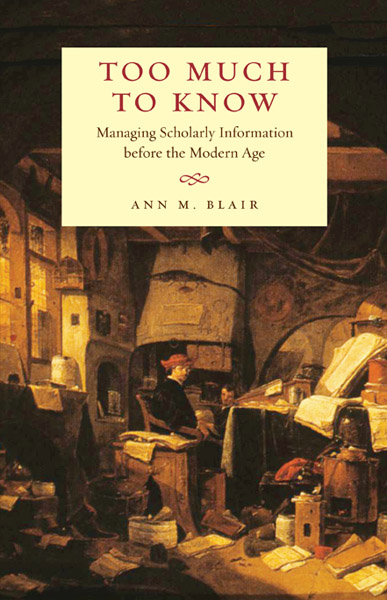a response to “Information Overload, Past and Present” by Dan Cohen, Executive Director of Digital Public Library of America (December 22, 2013)
points well taken about the somewhat perennial nature of information overload.
As I see it, we inherently live amid many “streams” — moving amid our physical environment, the flows in a workplace, the flow of what’s published, social media, time itself. Likewise, we’re always, to take Blair’s terms, “storing, sorting, selecting, and summarizing,” in a multitude of ways: from how our perception and memory works, to many ad-hoc means such bookpiles, shelves, notebooks, post-its, bookmarks, etc.
It’s a question of how well and happily we can do this navigation and minding. If we are too much in the stream, we experience overload and dissolution. On the other hand, if we retreat to existing acquaintances and interests, we risk being contained by habitual thinking and homophily.
Building on Blair’s terms, and incorporating ideas of “stream” and “flow”, I suggest the design pattern of a ‘distillery‘. Multiple incoming streams (eg water, grain, yeast, heat) come together in an ongoing process of refinement, becoming much more valuable and consumable (& ‘containable’ in a bottle!). I explore this model, and how I currently implement it for myself with various digital tools, at “From reading drift to reading flow.”
As to finding discussion, we might take the present topic and blog post as an example and ask, what might we do right now, to maximize the possibility of deep and meaningful conversation around this important topic?


